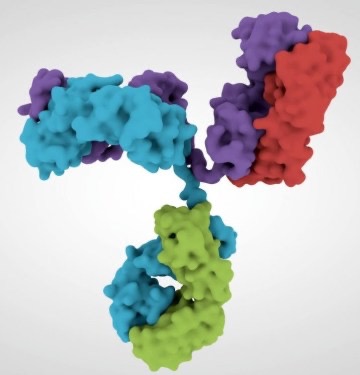Fusion Antibodies Research Note Part 2
Fusion Antibodies offers a complete range of antibody-related services in discovery, engineering and supply and have guided hundreds of projects through critical preclinical stages.
Key Highlights
- Leaders in antibody discovery, development and supply
- Active COVID-19 programme targeting end solution by summer that can be licensed
- Participation in the NICADA consortium to find antibody to neutralise COVID-19
- Revenue generation underpins business with year on year growth
- Leading Humanisation technology succeed where others fail
- Antibody Library that has potential to bring drugs and therapies to market faster
- Acute Respiratory Disease Syndrome partnership with Aqualung
Antibodies really are the future
This is my second research note on Fusion Antibodies following my recent catch up with Paul and James CEO and CFO of the company.
You can read part 1 here where I cover more about the company, the services they offer and an introduction to their potentially game-changing antibody platform the MAL (Mammalian Antibody Library)
In this second part I am going to focus on the MAL and the work they are doing in the COVID-19 space as well as other oncology because this really is what interests me but make no mistake this is not a pure CV19 binary play and I’ll explain why…
If you chat to the guys you get a real feel of excitement around the work they are doing in the antibody space. They are already proven in their field being recognised as worldwide antibody humanisation experts , essentially a process where you take animal antibodies and make them suitable and safe to be tested on humans, this is incredibly complex stuff!
Only 10 years ago, drug development was very different and many of the top selling drugs were small molecule base based. Today, no less than seven of the top ten selling drugs are antibody based.
This evolution and the importance of the role antibodies have to play (especially in light of CV19) puts companies like Fusion into pole position as all the major pharma companies will need to utilise the relevant technologies to fulfill their pipelines and bring innovative new treatments, tests and diagnostics to market, it really will be about antibodies.
So why Fusion?
Well in addition to their core services offering discussed in Part 1 they have been evolving their antibody library from a previous incarnation known as RAMP to what is now known as the MAL and it’s very exciting indeed…
Mammalian Antibody Library
A truly game-changing opportunity for the company

As previously touched upon, the MAL is a development of the RAMP platform and the company has been working on the library for around 2-3 years.
It’s essentially and unsurprisingly a library of animal antibodies which allows antibody candidates to skip the step of animal testing and be exposed to the library, something that also has an ethical appeal.
This has major benefits for Pharma companies wishing to develop antibodies for a variety of targets whether it be cancers or treatments and diagnostics for COVID-19, more on the latter in a minute…
Back to the benefits of the MAL
Pharma is and has always been a race to solve a problem, clearly some will take years but some can be quicker wins.
The MAL is game-changing for Pharma companies (and of course Fusion) as it is expected to reduce time to the clinic (trials), up-to eight times faster. This also allows Pharma companies to retain IP and get to market faster which is key for them. Now add to this that Fusion are already experts in the humanisation field with an ability to create high affinity (antibodies that bind well to targets), high yield and more commercially viable antibodies and you have a very attractive offering, one that should be very lucrative.
So how would it be lucrative?
The company is planning an innovative business model for the MAL. Now of course this all depends on validation of the MAL itself, there are no guarantees and the MAL may need further evolution however the company seems extremely confident and given the time in development and a dedicated expanded team working on the library testing, commercialisation may not be far off at all. In fact with CV19 as a key first test candidate, investors could be in for a double whammy (see conclusion)!
The company can monetise the MAL in two ways:
- Internally use the library to fast-track the antibody discovery and engineering process on a per client request basis with an up-front payment and carry/royalty on milestones such as reaching the clinic.
- License out the platform to individual Pharma companies as a bespoke offering targeted to their pharmaceutical requirement.
The company could not give me hard numbers here, this will very much be contract based and commercially sensitive I should imagine however it was agreed it is conceivable that per successful antibody that reaches the clinic Fusion could potentially benefit up to £150m It’s interesting to note that a US based company ADIMAB is doing exactly the above with their proprietary yeast library. You can see more about how they license their platform on their website, you’ll also note the impressive client base they now have.
Perhaps more interesting is taking a scan through their press articles, it’s littered with a number of partnerships and collaborations as you can see here
If Fusion achieves the same success with their library clearly it would be game-changing as the company has pointed out. Just a few successful antibody developments could theoretically yield hundreds of millions in revenue. On that basis the elusive $bn market cap would be insight, circa 50 bagger from today’s market cap!
And the work on COVID-19 ?
Fusion recently announced a research alliance with Queen’s University Belfast for CV19 antibody development. This is part of the wider NICADA consortium and gives Fusion access to the CV19 virus and importantly grant funding. The aim will be to develop new therapeutic molecules that can be evaluated for their ability to neutralize SARS-CoV-2 (CV19) by exposing the virus to the MAL. So Fusions angle here is very much in finding an antibody treatment that can neutralise the virus and would be a prophylactic, most likely a simple injection.
And if they succeed?
Upon identification of an antibody, Fusion could license it to large pharma’s to develop the end treatments including vaccines or therapy, clearly this would be transformative for Fusion and its shareholders.
At the minute we are focused on CV19 but remember the original intention of the library was for other applications so just as significantly, development of antibodies for other applications such as oncology would yield the same transformational rewards via either licensing or royalties.
Validating the library really would be a game-changer much wider reaching than CV19
Conclusion
So before I highlight all the fluffy bits and why those invested could be sitting on significant returns we need to be aware that pharma itself and small cap companies in general carry high risk so don’t be throwing the kitchen sink in, manage your risk !
Now back to business…
So in Part 2 of my research note I’ve expanded upon the MAL and how significant commercialisation of the library would be for Fusion and shareholders.
The recent fundraise has clearly weighed on the share-price which is to be expected and is ‘par for the course’, however investors that take the time to dive a bit deeper may see like myself an excellent RvR (Risk Vs Reward) opportunity for the following reasons:
Backed by a solid business
I believe the market cap of £25m is largely backed by the company’s core R&D services which with projected revenue growth and ability to scale could on their own provide investment growth. Some of the existing fixed-services agreements do have ‘carry’ meaning that a surprise revenue stream could materialise along with the core business.
MAL commercialisation would be transformative
Validating the MAL and bringing it to market would be truly transformational for the company and shareholders and open up potential revenue streams that simply dwarf anything the company has achieved to date.
Given the company are now in the final POC stage after a few years of development and have further ramped up the team via the recent fund-raise, investors may not have long to wait, in fact the company intend to update the market on progress particularly any development on the CV19 front but remember other targets will be trialled in the MAL too.
The icing on the cake
Should the company find an antibody that can successfully neutralise the COVID-19 virus discovered via the MAL, further upside would be huge as the antibody could be licensed to various drug companies who can produce treatments and diagnostics, not to mention the validation of the MAL which could be used for a multitude of applications.
Food for thought…

